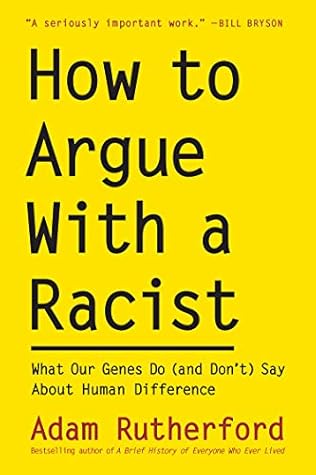More on this book
Community
Kindle Notes & Highlights
Read between
January 16 - January 17, 2021
As Charles Darwin wrote 150 years ago, “Ignorance more frequently begets confidence than does knowledge,”
In the pursuit of power and wealth, the fetishization of these differences has been the source of the cruelest acts in our short history.
Structural racism is everyday—and rooted in the everyday. It is rooted in indifference to the lived experience of the recipients of racism.
In 1939, Agatha Christie published her bestselling thriller Ten Little Niggers, which remained in print in the UK with that title until 1963, before becoming either Ten Little Indians or And Then There Were None,
Concepts of race have always been associated with attempts to categorize humans, sometimes to simply describe them, often to create pseudoscientific delineations, with the intention of subjugation and exploitation.
Racism has many definitions; a simple version is that racism is a prejudice concerning ancestral descent that can result in discriminatory action.
As a result, we are prone to saying glib things such as “race doesn’t exist,” or “race is just a social construct.”
Race most certainly does exist because it is a social construct.
Kant and Voltaire are unequivocally and perniciously racist by today’s standards.
Every one of these ideas though must be considered in the cultural context and time in which it was authored.
White supremacists. They fantasize about a persecution of their people that will end in their extinction or an erosion of their rights in exchange for the same rights afforded to people of different heritage. When all you’ve ever known is privilege, equality feels like oppression.


